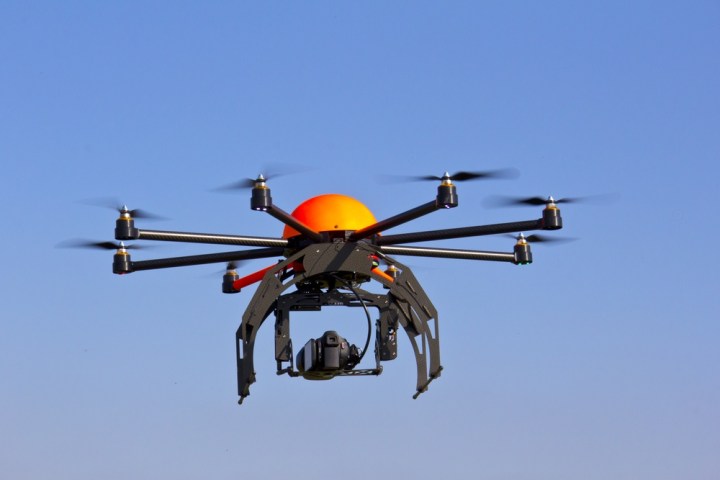
OK, we’re not really expecting carnage in the skies above America – not just yet anyway – but it’s certainly an interesting ruling, one the judge arrived at after concluding the drone had invaded the privacy of the shooter, William H. Merideth.
Merideth, dubbed the “drone slayer” by local reporters, told Kentucky news outlet Wave3, “I don’t believe I should ever have been charged,” adding, “The drone was trespassing. I had the right.”
The drone’s owner, David Boggs, told reporters outside the court he was “dumbfounded” by the judge’s ruling, saying, “I don’t think that the court looked at what really took place here.”
So what exactly did happen on that late Sunday afternoon back in July when the incident took place?
According to news reports at the time, Merideth said that at one point Boggs’ machine was “down by the neighbor’s house, about 10 feet off the ground, looking under their canopy that they’ve got under their back yard. I went and got my shotgun and I said, ‘I’m not going to do anything unless it’s directly over my property.’”
A short while later, Merideth said he saw the drone “hovering over the top of my property, and I shot it out of the sky…I didn’t shoot across the road, I didn’t shoot across my neighbor’s fences, I shot directly into the air.”
Merideth told cops he brought down the unmanned aerial vehicle (UAV) after his daughter and her friend spotted it flying over his property. He said he didn’t know if the operator was spying on his daughter, or looking for something to steal, but described the flight as “trespassing.”
Boggs insisted that his quadcopter, said to be worth around $1,800, flew past Merideth’s property at an altitude of at least 200 feet, and at no point hovered. He added that he was simply shooting photos of a friend’s home.
But Bullitt County Judge Rebecca Ward was having none of it, this week throwing out the case after ruling that Boggs’ copter flight was an invasion of privacy and that Merideth “had the right to shoot this drone.”
The case comes as the government grapples with a myriad of challenges posed by burgeoning drone ownership, with a million more UAVs of all shapes and sizes expected to take to the skies this Christmas.
While the vast majority of hobbyists are flying their remotely controlled toys responsibly, the foolhardy few have been causing increasing problems near airports, disrupting firefighting efforts in California, and even causing security scares at the White House.
In a bid to curb irresponsible drone operation, the Department of Transportation recently announced a new system that’ll require all owners of remote-controlled aircraft to register their machine with the government, a move it says will help “build a culture of accountability and responsibility, especially with new users who have no experience operating in the U.S. aviation system.”
As for the Kentucky court’s ruling, it could feasibly have implications for company’s like Amazon and Walmart, both of which are hoping to one day use drones to deliver goods to customers. After all, such a service would require plenty of copter trips into neighborhoods, trips that could see privacy-conscious residents reaching for the shooter to bring down UAVs buzzing overhead.
So long as the drones don’t start shooting back, we should be OK. Oh, hang on a minute….


